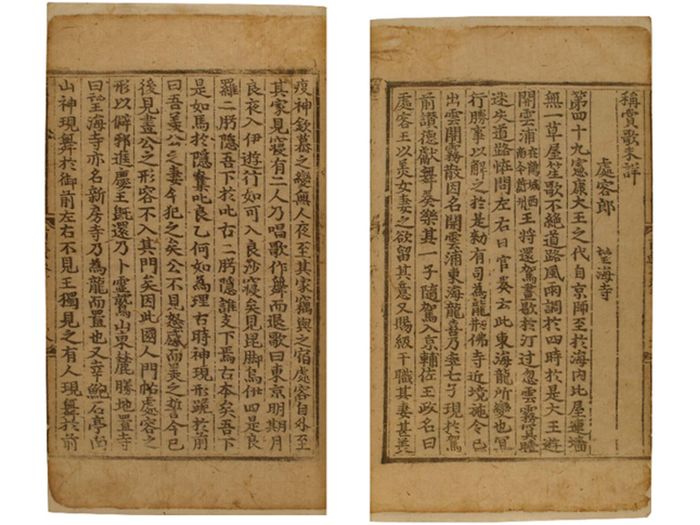(Translation) 2019 處容郎
| Primary Source | ||
|---|---|---|
 |
Title | |
| English | ||
| Chinese | ||
| Korean(RR) | ||
| Text Details | ||
| Genre | ||
| Type | ||
| Author(s) | ||
| Year | ||
| Source | ||
| Key Concepts | ||
| Translation Info | ||
| Translator(s) | Participants of 2019 JSG Summer Hanmun Workshop (Intermediate Training Group) | |
| Editor(s) | ||
| Year | 2019 | |
Original Script
Translation
Student Translation : I.Yi
The king married him to a beautiful woman, desiring to make his intentions stay. He also bestowed on him the position of kŭpkan. Ch'oyŏng's wife was extraordinarily beautiful and the god of plague longed for her. He transformed himself into a human and secretly arrived at their house at night and slept with her. Ch'oyŏng returned to his house and saw that the bed had two people. Thereupon he sang a song, made a dance, and retreated.
The song said, "When the Eastern Capital was bright with moonlight, at night, I went wandering.
Returning home, I see in my bed four legs!
Two belong to me; whose are the other two?
What can I do now they are taken?
At that time, the god of plague showed his form. He knelt in front of him, saying, "I longed for your wife and just now violated her. You haven't shown anger-- I'm moved and think that's beautiful. I vow that, from now on, if I see a drawing of your likeness on a house, I won't enter through that door. Thus, the people of that state placed Ch'oyŏng's likeness on their doors in order to evade evil and allow joy to advance.
- Discussion Questions:
What material was hyangga first recorded on? Is the first extant version a woodblock carving?